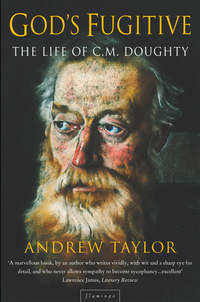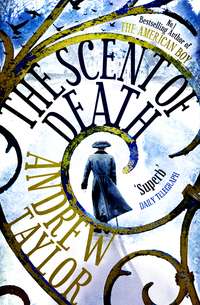
Полная версия
Fallen Angel
Sometimes it was dark, sometimes misty; sometimes Eddie had forgotten his glasses. Was another pillow taken from Stanley’s bed and clamped on top of the others? Then what? The body twitching almost imperceptibly, hampered by the weight of the bedclothes and by its own weakness?
More questions followed, because the whole point of this series of dreams was that nothing could ever be known for certain. What chance would Thelma have had against the suffocating weight pressing down on her? Had she cried out? Almost certainly the words would have been smothered by the pillow. And if any sound seeped into the silent bedroom, who was there to hear it? Who, except Eddie?
There had not been an inquest. Thelma’s doctor had no hesitation in signing the medical certificate of cause of death. His patient was an elderly widow with a history of heart problems. He had seen her less than a week before. According to her son and her lodger she had complained of chest pains during the day before her death. That night her heart had given up the unequal struggle. When he saw the body, she was still holding her glyceryl trinitrate spray, which suggested that she might have been awake when the attack began.
‘Just popped off,’ the doctor told Eddie. ‘Could have happened any time. I doubt if she felt much and it was over very quickly. Not a bad way to go, all things considered – I wouldn’t mind it myself.’
After Thelma had gone, 29 Rosington Road became a different house. On the morning after the funeral Angel and Eddie wandered through the rooms, taking stock and marvelling at the possibilities that had suddenly opened up. For Eddie, Thelma’s departure had a magical effect: the rooms were larger; much of the furniture in the big front bedroom, robbed of the presence which had lent it significance, had become shabby and unnecessary; and his and Angel’s footsteps on the stairs were brisk and resonant.
‘I think I could do something with this,’ Angel said as she examined the basement.
‘Why?’ Eddie glanced at the ceiling, at the rest of the house. ‘We’ve got all that room upstairs.’
‘It would be somewhere for me.’ She laid her hand briefly on his arm. ‘Don’t misunderstand me, but I do like to be by myself sometimes. I’m a very solitary person.’
‘You could have the back bedroom.’
‘It’s too small.’ Angel stretched out her arms. ‘I need space. It wouldn’t be a problem, would it?’
‘Oh no. Not at all. I just – I just wasn’t quite clear what you wanted.’
There was a burst of muffled shouting. Eddie guessed that it emanated from the basement flat next door, which was occupied by a young married couple who conducted their relationship as if on the assumption that they were standing on either side of a large windy field, a situation for which each held the other to blame.
‘Wouldn’t this be too noisy for you?’ he asked.
‘Insulation: that’s the answer. It would be a good idea to dry-line the walls in any case. Look at the damp over there.’
As they were speaking, she moved slowly around the basement, poking her head into the empty coal hole and the disused scullery, peering into cardboard boxes, rubbing a clear spot in the grime in the rear window, trying the handle of the sealed door to the garden. She paused by the old armchair and wiped away some of the dust with a tissue.
‘That’s nice. Late nineteenth century? It’s been terribly mistreated, though. But look at the carving on the arms and legs. Beautiful, isn’t it? I think it’s rosewood.’
Eddie remembered the smell of the material and the feeling of a warm body pressed against his. ‘I was thinking we should throw it out.’
‘Definitely not. We’ll have it reupholstered. Something plain – claret-coloured, perhaps.’
‘Won’t all this cost too much?’
‘We’ll manage.’ Angel smiled at him. ‘I’ve got a little money put by. It will be my way of contributing. We’ll need to find a builder, of course. Do you know of anyone local?’
‘There’s Mr Reynolds.’ Eddie thought of Jenny Wren. ‘He lives in the council flats behind. The one with the geraniums.’
Angel wrinkled her nose. ‘So his wife’s the bird-watcher?’
‘He’s nicer than she is. But he may be retired by now.’
‘I’d prefer an older man. Someone who would take a pride in the job.’
Angel decided that they should leave a decent interval – in this case a fortnight – between Thelma’s death and contacting Mr Reynolds. She spent the time making detailed plans of what she wanted done. Eddie was surprised both by the depth of her knowledge and the extent of her plans.
‘We’ll put a freezer in the scullery. One of those big chest ones. It will pay for itself within a year or so. We can take advantage of all the bargains.’
She examined the little coal cellar next to the scullery with particular care, taking measurements and examining the floor, walls and ceiling. There was a hatch to the little forecourt in front of the house, but Stanley had sealed this by screwing two batons across the opening.
‘This would make a lovely shower room. If we tile the floor and walls we needn’t have a shower stall. We can have the shower fixed to the wall. I wonder if there’s room for a lavatory, too.’
‘Do we really need it?’
‘It would be so much more convenient.’
At length Eddie phoned Mr Reynolds and asked if he would be interested in renovating the basement.
‘I don’t do much now,’ Mr Reynolds said.
‘Never mind. Is there anyone you’d recommend?’
‘I didn’t say I wouldn’t do it. I like to keep my hand in, particularly when it’s a question of obliging neighbours. Why don’t I come round and have a shufti?’
Ten minutes later Mr Reynolds was on the doorstep. He seemed to have changed very little in all the years Eddie had known him. He found it hard to keep his eyes off Angel, whom he had not previously met. They took him down to the basement.
‘We were thinking that we might let it as a self-contained flat,’ Angel told him.
‘Oh aye.’
‘There’s more that needs doing than meets the eye. That’s the trouble with these older houses, isn’t it?’
Mr Reynolds agreed. As time went by, Eddie realized that Mr Reynolds would have agreed to almost anything Angel said. Soon they were discussing insulation, dry-lining and replastering. Angel said that the tenants might be noisy so they decided to insulate the ceiling as well. They touched lightly on plumbing, wiring and decorating. Neither of them mentioned money. Within minutes of Mr Reynolds’s arrival they both seemed to take it for granted that he would be doing the work.
‘Don’t you worry, Miss Wharton. This will be a Rolls-Royce job by the time we’re done.’
‘Please call me Angela.’
Mr Reynolds stared at his hands and changed the subject by suggesting that they start by hiring a skip. Neither then nor later would he call Angel anything but Miss Wharton. His was a form of love which took refuge in formality.
Mr Reynolds did most of the work himself, subcontracting only the electrical and plumbing jobs. It took him over two months. During this time a friendship developed between the three of them, limited to the job which had brought them together but surprisingly intimate; narrow but deep. Mr Reynolds worked long hours and, when reminded, invoiced Eddie for small sums. Angel paid the balance with praise.
‘I’m not sure I can bear to let this room, Mr Reynolds. You’ve made it such a little palace that I think I might use it as my study.’
Mr Reynolds grunted and turned away to search for something in his tool bag.
The weeks passed, and gradually the jobs were completed. First the new floor, then the ceiling, then the walls. A hardwood door was made to measure, as was the long, double-glazed window overlooking the back garden.
‘Beginning to come together now, isn’t it?’ Mr Reynolds said, not once but many times, hungry for Angel’s praise.
If Mr Reynolds was curious about the relationship between Angel and Eddie, he never allowed his curiosity to become obtrusive. Almost certainly he guessed that Eddie and Angel were not living together as man and wife. Nor did Angel behave like a lodger: she behaved like the mistress of the house. Eddie came to suspect that Mr Reynolds did not ask questions because he did not want to hear the answers. Mr Reynolds was never disloyal to his wife, but from hints dropped here and there it became clear that he did not enjoy being at home; he liked this job which kept him out of the wet, earned him money and allowed him to see Angel almost every day.
When he had finished, the basement was dry and as airless as a sealed tomb. The acoustics were strange: sounds had a deadened quality. It seemed to Eddie that the insulation absorbed and neutralized all the emotion in people’s voices.
‘It’s perfect,’ Angel told Mr Reynolds.
‘Tell me if you need any more help.’ The tips of his ears glowed. The three of them were sitting round the kitchen table with mugs of tea while Eddie wrote another cheque. ‘By the way, what did happen to all those old dolls’ houses?’
Eddie glanced up at him. ‘My father used to raffle them at work for charity.’
‘Which reminds me,’ Angel said. ‘Some of his tools are still in the cupboard downstairs. Would you have a use for any of them, Mr Reynolds?’
The flush spread to his face. ‘Well – I’m not sure.’
‘Do have a look. I know Eddie would like them to go to a good home.’
‘I remember your dad making those dolls’ houses,’ Mr Reynolds said to Eddie. ‘Your mum and dad used to ask our Jenny round to look at them. She loved it.’ He chuckled, cracks appearing in the weathered skin around his eyes and mouth. ‘Do you remember?’
‘I remember. She used to bring her dolls to see the houses, too.’
‘So she did. I’d forgotten that. And look at her now: three children and a place of her own to look after. It’s a shame about Kevin. But there – it’s the modern way, I’m afraid.’
‘Kevin?’ Angel said.
Mr Reynolds took a deep breath. Angel smiled at him.
‘Kevin – Jen’s husband. Well, sort of husband.’ He hesitated. ‘It’s not general knowledge, but he’s a bad lot, I’m afraid. Still, he’s gone now. Least said, soonest mended.’
‘I’m so sorry. Children are such a worry, aren’t they?’
‘He ran off with another woman when she was expecting her third. What can you do? My wife doesn’t like it known, by the way. You’ll understand, I’m sure.’
‘Of course.’ Angel glanced at Eddie. ‘You and Jenny were friends when you were children, weren’t you?’
Eddie nodded. He’d given Angel an edited version of his relationship with Jenny, such as it had been.
‘Your mum and dad were very kind to her,’ Mr Reynolds went on, apparently without irony. ‘And she wasn’t the only one, they say. Maybe they’d have liked a little sister for you, eh?’
‘Very likely,’ Eddie agreed.
‘And he took some lovely photographs, too,’ said the little builder, still rambling down Memory Lane. ‘He gave us one of Jenny: curled up in a big armchair, looking like butter wouldn’t melt in her mouth. We had it framed. We’ve still got it in the display cabinet.’
‘Photographs?’ Angel said, turning to Eddie. ‘I didn’t know your father took photographs.’
Eddie pushed the cheque across the table to Mr Reynolds. ‘Here you are.’
‘Do you have some of them still?’ Angel smiled impartially at the two men. ‘I love looking at photographs.’
Angel questioned Eddie minutely about his past, which he found flattering because no one else had ever done so. The questions came by fits and starts and over a long period of time. Eddie discovered that telling Angel about the difficulties and unfairness he had suffered made the burden of them easier to bear. He mentioned this phenomenon.
‘Nothing unusual about that, Eddie. That’s why so many people find psychotherapy appealing. That’s why confession has always been such a widespread practice among Catholics.’
Since his father’s death, Eddie had kept the surviving photographs in a locked suitcase under his bed. Angel cajoled him into showing them to her. They sat at the kitchen table and he lifted them out, one by one. The photographs smelled of the past, tired and musty.
‘How pretty,’ Angel commented when she saw the first nude. ‘Technically quite impressive.’
In the end she saw them all, even the ones with Eddie, even the one with Alison.
What a Little Tease!
‘That one’s Mr Reynolds’s daughter,’ Eddie said, pointing to another print, anxious to deflect Angel’s attention from Alison.
Angel glanced at Jenny Wren. ‘Not as photogenic as this one.’ She tapped the photograph of Alison with a long fingernail. ‘What was her name?’
Eddie told her. Angel patted his hand and said that children were so sweet at that age.
‘Some people don’t like that sort of game.’ Eddie paused. ‘Not with children.’
‘That’s silly. Children need love and security, that’s all. Children like playing games with grown-ups. That’s what growing up is all about.’
Eddie felt warm with relief. Then and later, he was amazed by Angel’s sympathy and understanding. He even told her about his humiliating experiences as a teacher at Dale Grove Comprehensive School. She coaxed him into describing exactly what Mandy and Sian had done. The violence of her reaction surprised him. Her lips curled back against her teeth and wrinkles bit into the skin.
‘We don’t need people like that. They’re no better than animals.’
‘But what can you do with them? You can’t just kill them, can you?’
Angel arched her immaculate eyebrows. ‘I think one should execute them if they break certain laws. There’s nothing wrong with capital punishment if the system is sensible and fair. As for the others, why don’t we put them in work camps? We could make the amount of food and other privileges they get depend on the amount of work they produce. Then at least they wouldn’t be such a total liability for society. You have to admit, it would be a much fairer way of doing things.’
‘I suppose so.’
‘There’s no suppose about it. You have to be realistic.’ Angel’s face was serene again. ‘One has to use other people – except one’s friends, of course; they’re different. Otherwise they abuse you. Obviously one tries to be constructive about how one uses them. But it’s no use being sentimental. They’ll just take advantage, like Mandy and Sian did. In the long run it’s kinder to be firm with them right from the start.’
Angel furnished her little palace as a bed-sitting room. She and Eddie brought down the bed which had belonged to Stanley and installed it on the wall opposite the long window. The reupholstered Victorian chair stood by the window. Beside it was a hexagonal table which Angel had found in an antique shop. She scattered small rugs, vivid geometrical patterns from Eastern Anatolia, over the floor. There were no pictures on the severe white walls.
Eddie went down to the basement only by invitation. By tacit consent, the new shower room was reserved for Angel’s use. If they needed something from the big freezer in the former scullery, it was always Angel who fetched it.
‘I know where things are,’ she explained. ‘I’ve got my little system. I don’t want you confusing it.’
She bought a small microwave and installed it on a shelf over the freezer.
‘Wouldn’t it be more convenient in the kitchen?’ Eddie asked.
‘It would take up too much space. Besides, we’ll use it mainly for defrosting. And having it down there will be handy if I want to heat up a snack.’
Despite the bed, Angel did not usually sleep in the basement, but in Thelma’s old room upstairs. There was not enough space for her clothes in the wardrobes which had belonged to Eddie’s parents, so she asked Mr Reynolds to fit new ones with mirrored doors along one wall of the front bedroom.
One morning in early May while Mr Reynolds was working upstairs, there was a ring on the doorbell. Eddie answered it. Mrs Reynolds was on the step, both hands gripping the strap of her handbag. For a second she stared at Eddie. She had bright brown eyes behind heavy glasses, a snub nose and small lips like the puckered skin round an anus.
‘I’d like a word with my husband, if you please.’
Eddie called Mr Reynolds and went back into the kitchen, closing the door behind him with relief. Sometimes, when he was washing up in the winter months, he looked through the kitchen window, through the screen of leafless branches, and glimpsed Mrs Reynolds with her binoculars on the balcony of the flat. Mr Reynolds had told Angel at great length about how he had bought a new and more powerful pair of binoculars as a surprise birthday present for his wife.
There was a tap on the kitchen door. Mr Reynolds edged into the room.
‘Sorry – something’s come up. I’ll have to go now. I’ll give you a ring in the morning, if that’s OK?’ He looked perfectly normal. It wasn’t what he said but how he said it. His voice trembled, and his breathing was irregular. He sounded ten years older than he really was.
Eddie stood up. ‘Is everything all right?’ He knew that Angel would want to know why Mr Reynolds had left early.
‘It’s our Jenny,’ said Mr Reynolds, retreating backwards out of the room as if withdrawing from royalty. ‘There’s been an accident.’
Poor Jenny Wren. Who better than Eddie to know that patterns repeated themselves? Sometimes he thought of his father and wondered what had happened to him when he was young; and so on with his father’s father and his father’s father’s father; and back the line went through the centuries, opening a vertiginous prospect stretching to the birth of mankind.
Even as a child, Jenny Wren had been marked out as a failure. Fat, clumsy and desperate for love, she carried her self-consciousness around with her like a heavy suitcase handcuffed to her wrist. Her children, Eddie learned later from Mr Reynolds, had been taken into care. And after the third one was born, Jenny Wren plunged into a post-natal depression from which she never really emerged.
She lived in Hackney, in a council flat on the fourth floor of a tower block. On that morning when her father was putting the finishing touches to Angel’s fitted wardrobes, she took a basket of washing on to her balcony. Instead of hanging out the clothes, however, she leant over the waist-high wall and stared down at the ground. Then – according to a witness who was watching, powerless to intervene, from a window in the neighbouring block – she lifted first one leg and then the other off the ground and rolled clumsily over the wall.
Characteristically, the suicide attempt was a failure. Though she dived head first on top of her cerebral hemispheres, the fall was partly broken by a shrub. She did a good deal of damage to herself – a badly fractured skull and other broken bones – but unfortunately she survived. A week after the fall, Mr Reynolds returned to 29 Rosington Road to finish off the wardrobes.
‘Jen’s in a coma. May never wake up. If she does, there may be brain damage.’
Angel patted his hand and said how very, very sorry they were. She and Eddie had sent flowers to the hospital.
‘How’s Mrs Reynolds coping?’
‘Not easy for her. The chaplain’s been very kind.’ The shock had made Mr Reynolds less talkative, and everything he said had a staccato delivery. ‘Not that we’re churchgoers, of course. Time and a place for everything.’
‘Are you sure you want to carry on with the wardrobes?’ Angel asked. ‘I’m sure we could find someone else to finish off. You must have so much to do. We’d quite understand.’
‘I’d rather keep busy, thanks all the same.’
Halfway through June, about six weeks after Jenny Wren’s fall, the first little girl came to stay at 29 Rosington Road.
Chantal was the daughter of an English investment analyst and his French wife. The family lived in Knightsbridge, a long stone’s throw from Harrods. Chantal was the third child and her parents did not pay her much attention, preferring to hire nannies and au pairs to provide it instead. Angel had first noticed her at a birthday party for one of Chantal’s school friends; at the time, Angel had been acting as a relief nanny for the school friend’s younger sister.
Despite frequent temptation, Angel never took one of her own charges. ‘Only stupid people run unnecessary risks,’ she told Eddie when they were preparing the basement for Chantal. ‘And they’re the ones who get caught.’
Chantal’s father was black and she had inherited his pigmentation. (Angel despised people like Thelma who were racist.) They dressed her in white dresses, which set off her rich dark skin. She had a tendency to giggle when Eddie played games with her. Occasionally Angel acted – in Eddie’s phrase – as Mistress of Ceremonies. But he did not think she enjoyed the games very much.
Human beings were such a mass of contradictions. Although Angel was wonderful at looking after children, and skilled at making them do as she wanted, she seemed not to like playing with them.
Eddie had a wonderful time for two weeks and three days. One morning he woke to find Angel beside his bed. She was carrying a cup of tea for him, a rare treat. He sat up and thanked her, his mind already running ahead to the treats planned for the day.
‘Eddie.’ Angel stood by the bed, adjusting the knot that secured her robe. ‘Chantal’s gone.’
‘Where? What happened?’
‘Nothing’s wrong, don’t worry. But I took her back home last night. Back to her mummy and daddy.’
He stared at her. ‘Why didn’t you tell me?’
‘Because I knew you’d be upset. I knew you’d hate having to say goodbye to her.’ She paused. ‘And she wouldn’t want to leave you.’
Eddie felt his eyes filling with tears. ‘She could have stayed with us.’
‘No, she couldn’t. Not for ever and ever. There would have been all sorts of difficulties as she grew older.’
Eddie turned his face towards the wall and said nothing.
‘Think about it.’
Eddie sniffed. Then a new problem occurred to him. ‘What happens if she tells her parents about us, and they tell the police?’
‘What can she say? All she’s seen is our faces. She doesn’t know where the house is, or what the outside looks like. She only saw the basement. Besides, the police aren’t going to try too hard. Chantal’s back home, safe and sound. No harm done, is there?’
‘I still wish I could have said goodbye.’
‘It made sense to do it this way. We didn’t want tears before bedtime, did we?’
‘Maybe she could come and stay with us again?’
Angel sat down on the edge of the bed. ‘No. That wouldn’t be a good idea. But perhaps we can find someone else to come and stay.’
‘Who?’
‘I don’t know yet. But no one who lives in Knightsbridge. The police look for patterns, you see. They try to pinpoint the recurring features.’
For Katy, they travelled up to Nottingham and rented a flat there for three months. Katy was an unwanted child who escaped from her foster parents at every opportunity and wandered the streets and in and out of shops.
‘Looking for love,’ Angel commented. ‘It’s so terribly sad.’
Suki, their third little girl, had a stud in her nose and a crucifix dangling from one ear; she belonged to some travellers camping in the Forest of Dean. Angel said that the mother was a drug addict; certainly Suki smelled terribly, and when they washed her for the first time the bath water turned almost black. (This was the occasion when Suki bit Eddie’s hand and screamed like a train.)
‘Some parents shouldn’t be trusted with children,’ Angel used to say. ‘They need to be taught a lesson.’
She repeated this so often, in so many ways and with such force, that Eddie thought it might amount to part of a pattern, albeit one invisible to the police.
On Sunday the first of December, after Lucy’s bath, Angel spent the rest of the morning reading to her in the basement. At least, that was what Angel said she was doing. Eddie was both hurt and angry. Angel had never been possessive with the others: she and Eddie had shared the fun.








